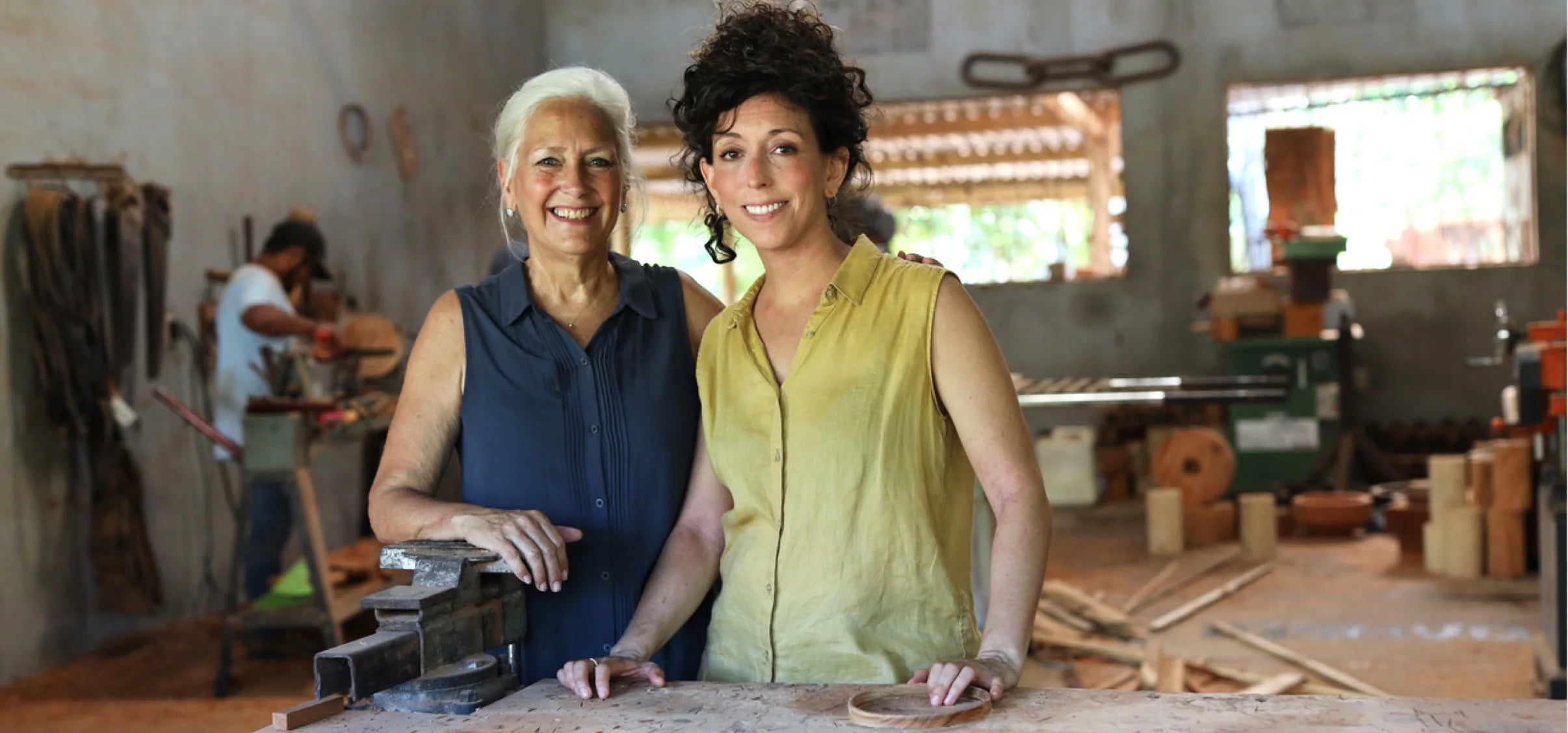Gifting has never been easier
Perfect if you're short on time or are unable to deliver your gift yourself. Enter your message and select when to send it.
Story by Diana Keeler

Itza Wood showcases products made of exotic tropical hard woods from the Peten Jungle to help fund social initiatives – like employment and education – that enhance economic growth in this remote region of Guatemala. The company is led by a mother-and-daughter team: Philadelphia native Suzanne Babarczy and her daughter Eliza, who spent much of her childhood in Guatemala, where Suzanne founded The Jungle School with her husband Mario.
When Eliza Babarczy reached an inflection point in her professional life as an event planner, she looked to her past for inspiration for where to turn next — to a childhood spent largely in Guatemala. “I was very comfortable living Stateside, but as I was trying to decide where I really wanted to land, I took a six-week trip through Latin America, and my love for this part of the world was reignited,” she says.

Babarczy’s mother, Suzanne Babarczy, had grown up in Philadelphia, while her father, Mario Babarczy, is from Peru. Together, the elder Babarczys founded The Jungle School in remote Peten, Guatemala, in 1999, with 15 students. Now, they offer pre-K, elementary, secondary and vocational training to over 400 students.
Pictured: Students at The Jungle School, founded by Suzanne Babarczy and her husband, Mario in 1990.

Eager to try something new, Eliza Babarczy left Columbus, OH, originally intending to spend a year or two in Guatemala, working alongside her parents: “The stars just aligned, and after a lot of processing what felt like a scary and heavy decision and getting to a point where it felt right, a year later I was here, living down a dirt road in the rural jungle of Guatemala.”
Pictured: Guatemala’s lush Peten Jungle.

While largely undeveloped, this part of Guatemala is also rich in natural resources.
“Looking around to see what we could work with to create more job opportunities, it was hard to not notice the stunning tropical woods native to Peten,” says Babarczy, who worked alongside her mother in developing the brand’s product line. “There’s also a carving tradition, especially of smaller objects — it’s the best way to use branches and off-cuts of the wood,” says Suzanne.
And so: tables and chairs were out, but spoons crafted in the tiger stripes of jobillo wood, chic trays in granadillo, and serving boards in alabaster and ziricote were in. “As much as we love a well-designed wooden desk or table, we see so much good and opportunity in also designing around the off-cuts and making smaller objects,” Babarczy says.

A skilled wood worker at the Itza Wood workshop.
The utensils are generally created from off-cuts; while some lumber is purchased for other products, all of it is sustainably harvested. As the products are responsibly sourced, they’re also thoughtfully created, by a team of local artisans, Babarczy says. “The spoons are hand carved; to make them, we work with a team of carvers who are able to work from home, while a lot of women will do the sanding and finishing work on our spoons,” she says. “We started four years ago with two super talented guys in the workshop, Hector España and Maynor Ba. Hector had done a woodworking apprenticeship in San Juan Sacatepequez and is the kind of guy that can make or fix anything — he’s an amazing creator and a great teacher. Between our workshop and the carving team, we’re now almost 30 people.”
– Eliza Babarczy, co-founder Itza Wood

Four years have passed since Babarczy returned to Guatemala — twice as long as she expected, and still counting. “I was surprised at how quickly I was able to adapt and how the tough stuff and the challenges, though always tricky, feel so much more meaningful and manageable when related to something you know you’re supposed to be doing,” she says. “I finally found my element. Depression and anxiety don’t hit me hard at all since I returned here. It’s not always easy, but there is something so profoundly grounding and beautiful about this simple life.”
Your Shopping Cart is Empty
Browse our latest collection or check your saved favorites to add more items to your cart.




Manage your profile, track your orders, and enjoy a seamless shopping journey with us.